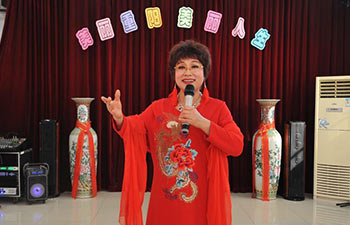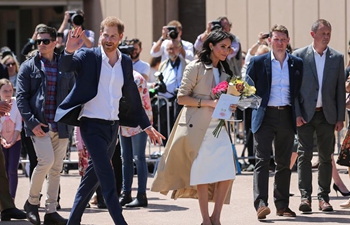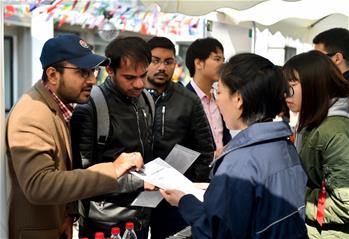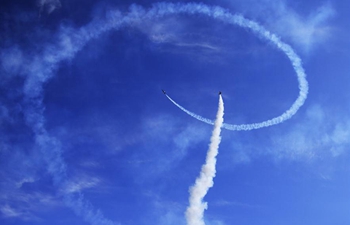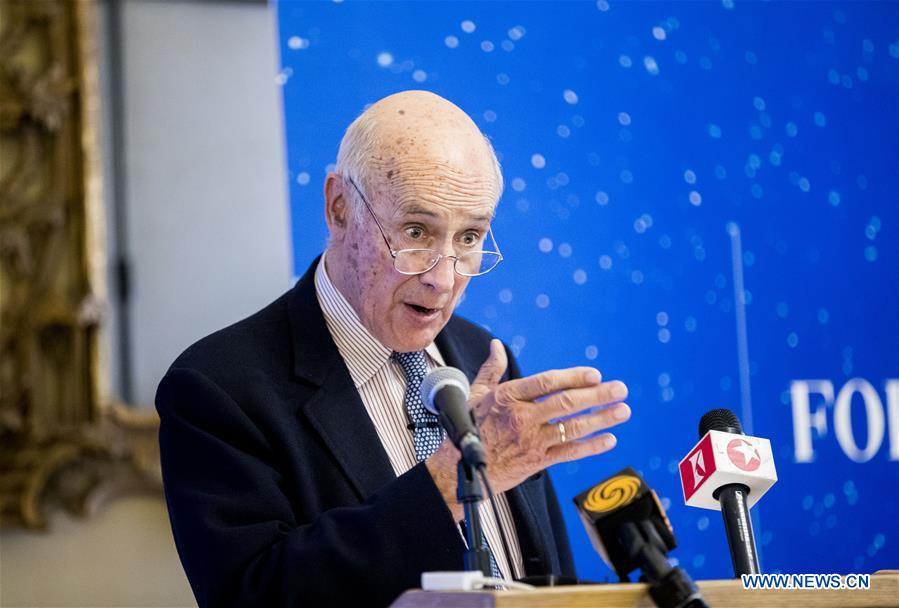
Former Dean of the Kennedy School of Harvard University Professor Joseph Nye delivers a speech during a forum on "China's Economic Development and China-U.S. Relations" at Harvard University's famed Loeb House in Cambridge of Massachusetts, the United States, Oct. 15, 2018. Joint efforts have to be made by both the United States and China to maintain the healthy and stable development of bilateral cooperative ties, which are not only mutually beneficial but crucial for a stable world order, top American and Chinese experts said here Monday. (Xinhua/Wang Ying)
by Xinhua writers Yang Shilong, Chang Yuan
BOSTON, Oct. 15 (Xinhua) -- Joint efforts have to be made by both the United States and China to maintain the healthy and stable development of bilateral cooperative ties, which are not only mutually beneficial but crucial for a stable world order, top American and Chinese experts said here Monday.
Considering the changing dynamics of the global political and economic order, China and the United States should not be a threat to each other but explore how they rely on and compete with each other for the benefit of both countries and the world as a whole, said professor Joseph Nye at a forum held at the Loeb House, Harvard University.
"And I fear that what we are going through now in the current time of trouble is that we're going to lose some of that capacity to appreciate each other's soft power, and thereby jeopardize some of our longer-term capacity to cooperate," he said. "China and the United States can work together, and we are not going to have an international order where either country can prevail."
Nye, who coined the term "soft power" in the late 1980s, said that much of the current rhetoric in the United States and the West regarding China's use of soft power is based on misperceptions.
For a stable international order that is beneficial to all parties, the world's two largest economies have to cooperate with each other and use their soft power for the common good of mankind, said Nye, who served as chair of the National Intelligence Council and assistant secretary of defense for international security affairs in the Clinton administration.
"If China and the United States are going to cooperate on major problems of the future, such as climate change or rules for cyberspace or pandemics, we're going to have to have an attitude towards each other of being able to cooperate," he said.

